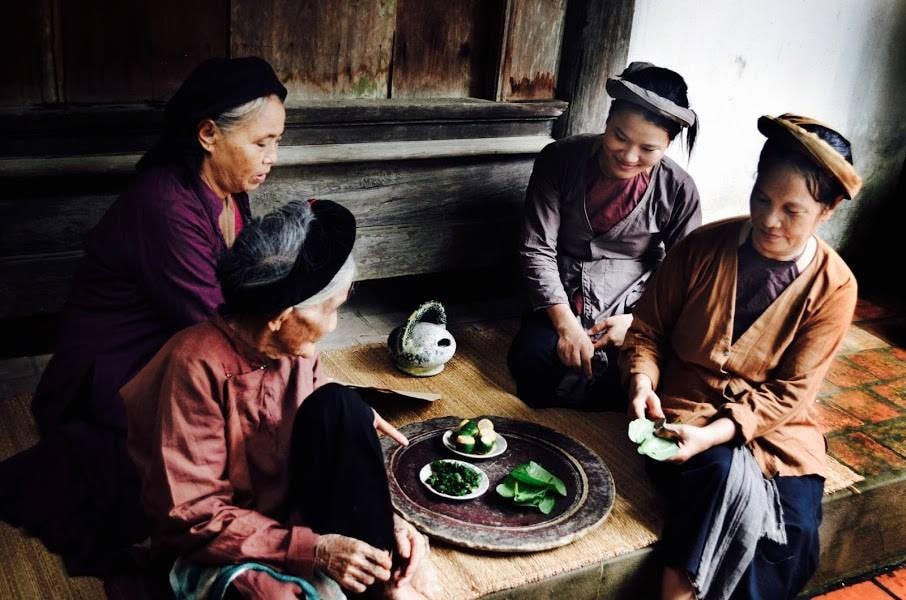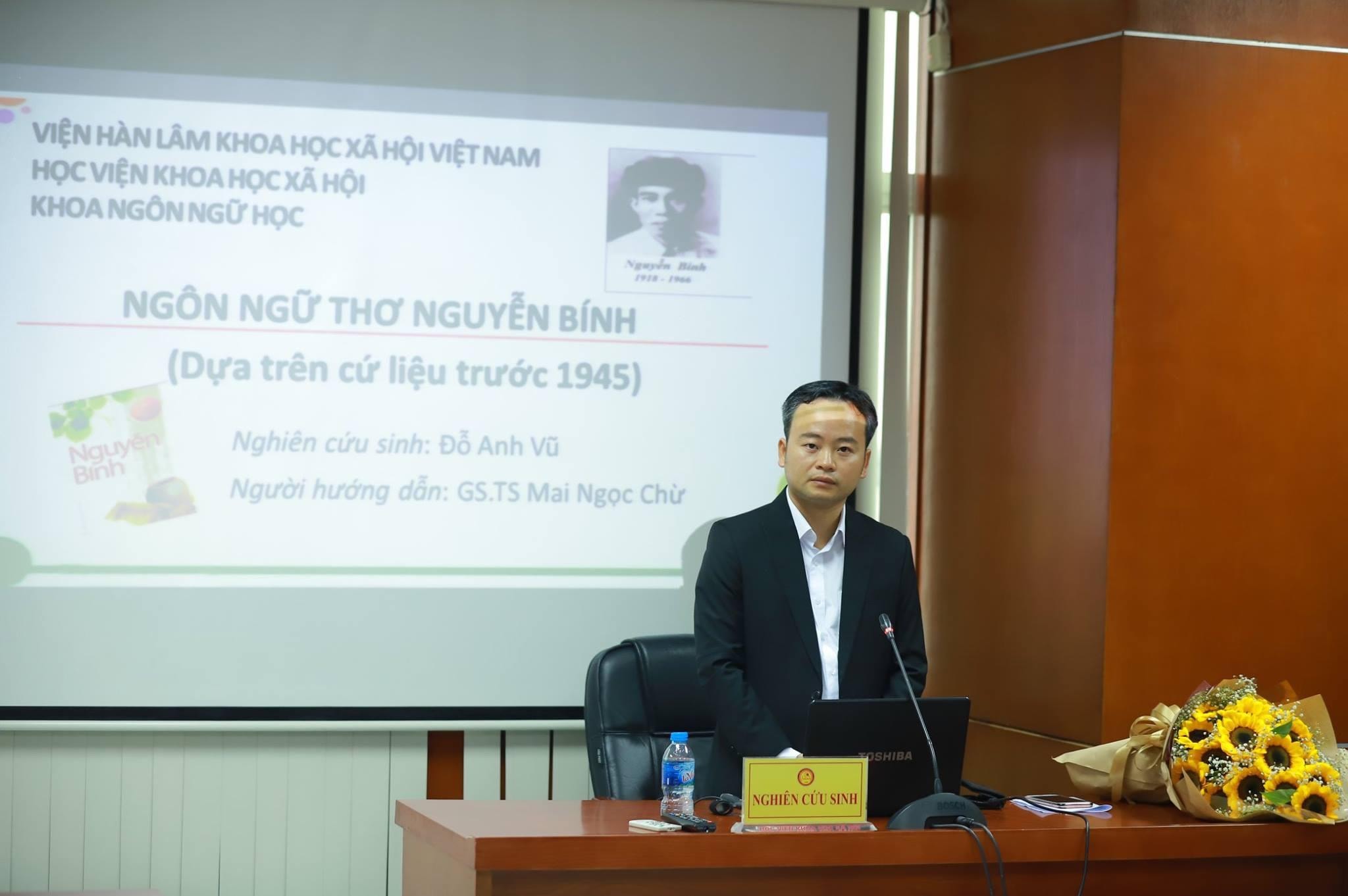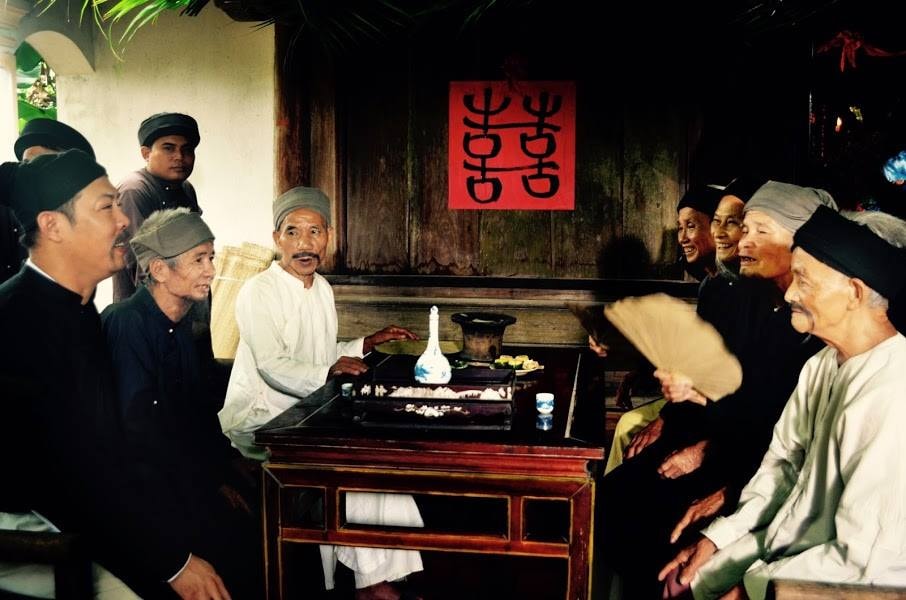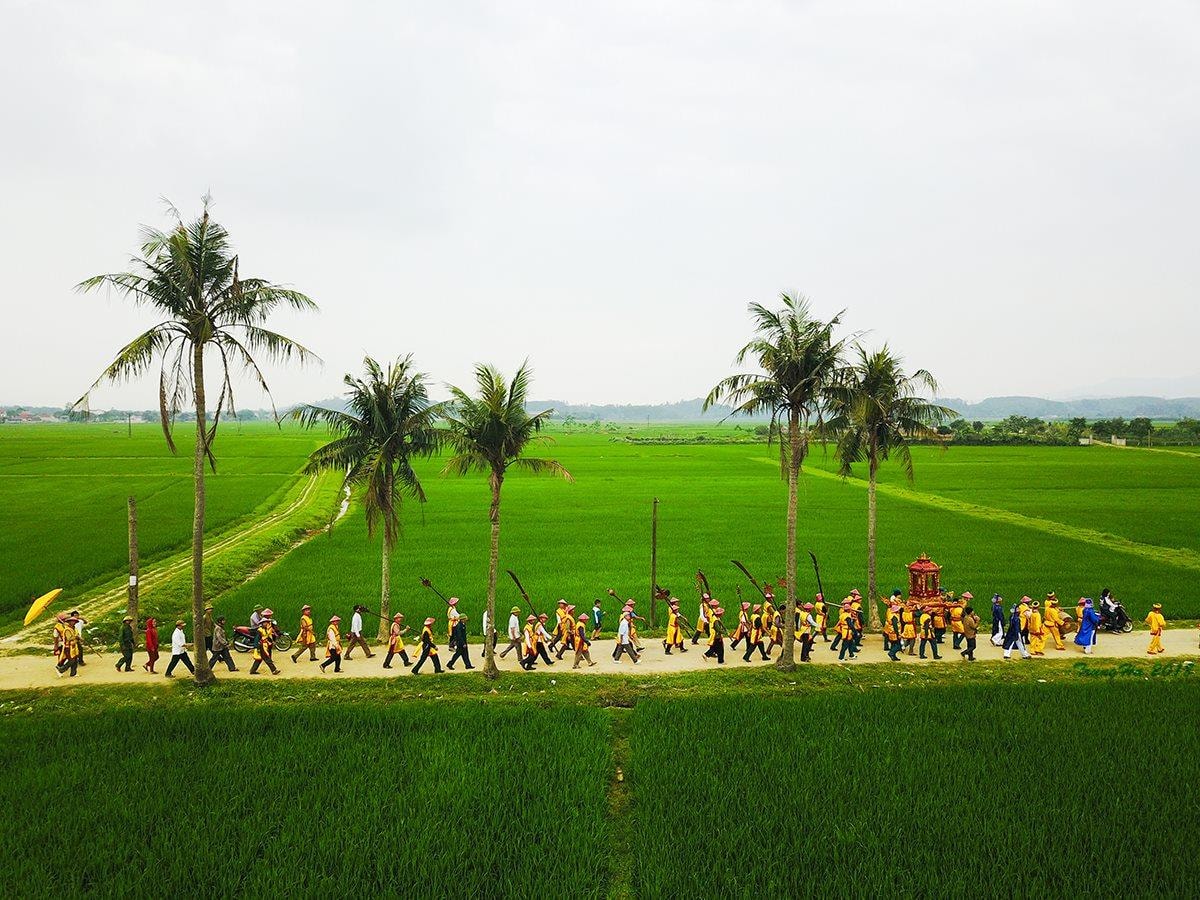Dr. Do Anh Vu: Nghe An language is a part of our ancestors' flesh and blood.
(Baonghean) - Doctor of Linguistics Do Anh Vu (born in 1980, has many unique research works on language; composes poetry, writes essays, translates) has written many passionate articles on ethnic languages, including dialects. We recently had a discussion with him about Nghe dialect in the general flow of Vietnamese.
In the flow of national languages, dialects play a very important role, creating a unique identity for each region. What does Dr. Do Anh Vu think about Nghe dialect??
Scientifically, dialectology is a branch of linguistics. Socially, dialect is a common phenomenon in most countries/ethnicities in the world. In essence, it is the expression of the national language in a particular locality with its differences compared to the national language or another dialect. Dialects are also a part of culture, bearing the mark of each region.
In Vietnam, linguists have generally agreed on dividing the dialects into three main regions: Northern dialect, Central dialect and Southern dialect. Nghe belongs to the Central dialect region, including the two provinces of Nghe An and Ha Tinh. Thus, the Central dialect will have two more regions: Thanh Hoa dialect and Binh Tri Thien dialect, both of which have certain differences in terms of phonetics and vocabulary compared to the Nghe Tinh dialect.
 |
| Nghe dialect is one of the regions belonging to the Central dialect. Over a tray of betel and a pot of green tea, the lively conversations on the porch of the ladies' houses are imbued with the soul and love of the countryside. Photo: Cao Dong |
Nghe ngu is a new noun used to identify Nghe people who speak Nghe dialect, which has its own identity, not mixed with any other locality. In terms of semantics, Nghe dialect has many words and dialects that are different from the general dialect. This has partly caused problems in communication, do you think that is true?
When considering the differences between dialect regions, two issues arise: the differences in vocabulary systems and phonetic systems. There is a very interesting phenomenon in life that we can easily observe, that is, people of the Northern dialect (born and raised in the North) who hear people of the Central dialect talking to each other, or more specifically, listening to Nghe people talking to each other, may not understand anything, the Northern people will often say a catchphrase:“NI heard them chatter like birds, I don't understand anything.".
When you mention the difference in vocabulary, you can make some typical comparisons through a quite funny six-eight verse passage as follows:The buffalo is called a tru/ The daughter-in-law is called a du in the house/ Man is a skirt, ngai is far/ Where to go is to ask who is going/ Nac su means deep water/ Tray bu is to call a gourd”…
 |
| Dr. Do Anh Vu. Photo: Van Khanh |
However, I think that if you think that dialects in general and Nghe language in particular cause communication problems, it is not necessarily true. In fact, when Nghe people interact with people from other regions, they always consciously use word units belonging to the national language system to make it easier for listeners to understand and facilitate communication.
I also see many Nghe An people who can speak with a Northern accent/Northern dialect like Hanoians. If they don’t introduce themselves as being from Nghe An, outsiders won’t know. Next, let me say the opposite, do Northerners and Southerners find it difficult to interact with Central Vietnamese people in general and Nghe An people in particular?
In my opinion, the difficulty is not big, mainly in the first one or two times, because of some differences in phonetics/tone expression. As for vocabulary, in many cases, based on the communication situation, I can still guess and understand, or when I don't understand, I ask my conversation partner what the word actually means.
Thus, the differences in dialect regions will make the linguistic picture of each country more diverse and rich, and can become interesting scientific research topics rather than being too troublesome.
What does Dr. Do Anh Vu think about Nghe accent?
Regarding the timbre of Nghe An, compared to the Northern dialect which has 6 tones, Nghe An only has 5 tones because the falling tone and the heavy tone merge into one, without distinction. In some localities of Nghe Tinh, as I observed, there is also the phenomenon of the asking tone and the falling tone merging into one or the sharp tone and the heavy tone merging into one (similar to the Hue dialect). Nghe An is also considered to have a greater depth than the Northern and Southern dialects.
Besides, there are also some differences in the expression of initial consonants. If the Northern people do not distinguish between s and x, r and d/gi, tr and ch; the Nghe people have a quite clear pronunciation of the above pairs of units.
 |
| Compared to the Northern dialect which has 6 tones, the Nghe dialect only has 5 tones because the falling tone and the heavy tone are merged into one, not distinguished. Therefore, when foreigners hear Nghe people speak, they are often quite confused because they do not understand the meaning of the sentence. Photo: Cao Dong |
Nghe Tinh Vi Giam folk songs are the crystallization of Nghe dialect. How do you evaluate the Nghe tones in Vi Giam folk songs?
Indeed, observing the lyrics in folk songs or songs with folk melodies, we will clearly see the regional phonetic characteristics expressed in them. When a singer performs a Nghe Tinh folk song or a song with Nghe Tinh folk melodies, he must also clarify this to bring out the Nghe quality, to be considered a successful performance.
If we take a few examples of famous songs written on the basis of Nghe Tinh folk songs, we will also see very clearly how the phonetic characteristics of Nghe dialect are expressed. For example, the songIn the middle of Moscow, listening to Nghe Tinh folk songsof Tran Hoan, right from the first sentence, the word "between" sing like "between", is to show the characteristics of falling tone and heavy tone combined into one. Or the songListening to the boat singing at night, I miss Uncle Hoby musician An Thuyen, in the verse "endless memories and lingering fragrance in life", letter "between" is also sung as the word "between".
 |
| Vi Giam folk songs are crystallized from hard work, from the sun and wind of the fields, from the simple speech of the farmers of Nghe An. Scenes of rustic life become a special performance space for the lyrics and melodies imbued with "Nghe" character to fly far and wide. Photo: Cao Dong |
Dialects in general and Nghe An dialect in particular always maintain their own identity and contribute to enriching the Vietnamese language. Do you fully support the use of dialects?
Using dialect is a very normal social phenomenon, the native language of any region needs to be respected and preserved. When choosing a language to broadcast on national television/radio stations, people then need to consider which dialect to choose to create the most favorable reception, but in life, returning to the homeland to hear the native accent is a happy thing. In the homeland, one must speak the native language and listen to the native language.
The Vietnamese have a saying “cursing your father is not as good as mixing your language” to talk about this, let’s try to keep our native language intact in its original form. Surely you still remember the famous Tang poemRandom Letter of Homecomingby Ha Tri Chuong, in the poem there is a sentence describing the emotion of hearing one's hometown accent again:When I left home young, when I returned old/ My hometown accent is still the same, my hair has changed a lot.
 |
| Exciting village festival in Nghe An.Photo: Trung Ha |
Do you think Nghe An is good?
I love Nghe dialect, love Chinese dialect as well as dialects of all regions in Vietnam. I like the most to hear the voices of young girls, the daughters of each region speaking their native language. Not only me but many other men also have the same feeling when I did sociolinguistics interview tests. Nghe dialect or any regional dialect is a part of our ancestors' flesh and blood, as musician Pham Duy said in his famous Love Song: "I have loved my mother tongue since I was born. My mother sang me distant lullabies. Ah ah oh, the eternal lullaby.…”
Sincerely thank Dr. Do Anh Vu for sharing.



